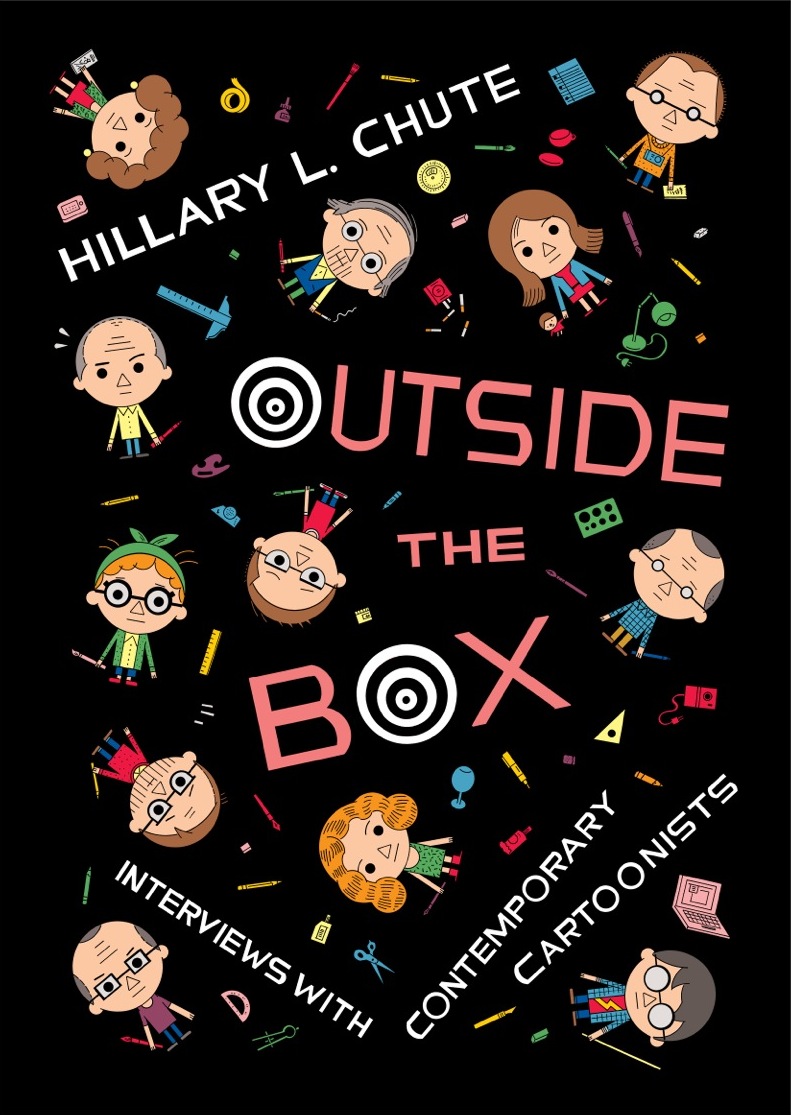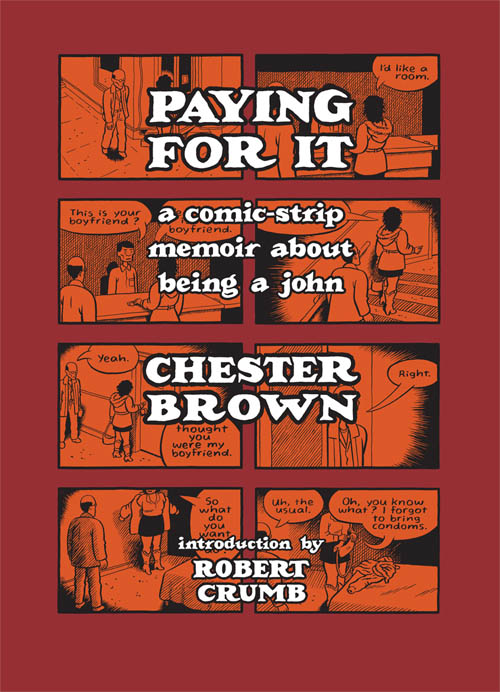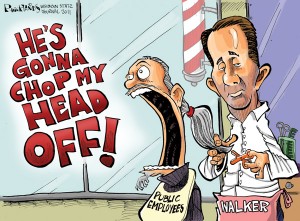I’m a freelance writer who occasionally writes about comics. I’m sort of an outsider to comics criticism and reporting; I came to it two years ago when I wrote a long piece on truth in autobiographical comics for The Awl.
Recently , Pacific Standard ran an interview I did with Hillary Chute, a comics scholar. On Twitter, I couldn’t help but notice when Tom Spurgeon mentioned it:
i admire the work and writing of Hillary Chute, but Lucy Shelton Caswell was writing a/b comics in an academic milieu before Chute was born
writers, please, there’s no reason to shape the past to serve a distillation that reads well in a modern article; i can do better, too
I’d like to explain how I interpreted his words about my work, pausing first to acknowledge the obvious fact that there’s something distasteful about parsing someone’s subtweets (at least in public). It feels undignified. I’m doing it anyway because it’s a near-perfect case study in how comics criticism is systemically closed to women.
Here’s a gloss of what Spurgeon’s subtweets said to me:
- Why did I write about THIS woman in an academic milieu? I should have written about THAT one…even though she retired like five years ago.
- Tom Spurgeon knows who the real foremost comics scholar is. His ruling on the matter is final and implicitly correct. It is impossible for another writer to have a valid, but different, opinion.
- Further, he feels the onus upon him to dispense writing advice to his brethren. “Writers, please…” Everyone gather round so Tom can tell you how to be.
- But he disguises his presumption with faux humility: he “can do better, too.” Better, in this case, meaning two pompous subtweets.
- He questions my journalistic integrity, saying I “shape the past” to serve an agenda. A nasty little thing to say about a professional writer, even in a subtweet.
- That agenda, according to Spurgeon, was “to serve a distillation that reads well in a modern article.” Note the negative value judgment here on distillation, reads well, and modern. Are those things bad?
In summary, he suggested there is only one female comics scholar(-ish person) worth writing about, questioned my integrity, and used my work as an example of what comics critics must never do. And he got to do ALL OF THAT without ever saying my name or directly referencing the piece. I mean, why would he? To him, it wasn’t even real for the simple reason that he disagreed with it.
All critics should try to seek out opinions that are different than their own, but with vaunted experts like Spurgeon, the stakes are even higher. As one of the foremost figures in comics writing, he has a professional responsibility to think twice before trashing new perspectives and alternative approaches to his field. He seems like a vocal advocate for diversity, but how does he expect his insular world to open up if he isn’t willing to entertain the possibility that someone who doesn’t share his view isn’t just a hack?
I’m lucky to be old enough and confident enough in my talent that Tom Spurgeon’s opinion doesn’t impact my sense of self-worth. But I suspect his lack of regard might have been deeply discouraging to a younger woman, especially one who hoped to seriously pursue writing about comics. When I think about that, and about how he broadcast his ridiculous proclamations on what a critic should be to his 14k followers—who, again, give his opinion on these matters special weight—I feel mad as hell and perversely amused. I have read the same tone in other women’s comments when they write about sexism in comics.
Which brings me to another tweet of Spurgeon’s I saw earlier in the week.
dear professional friends that happen to be women — please stop writing me and start posting
He wasn’t talking to me, of course, and I know he meant well, but boy, did that stick in my craw. This sort of “encouragement” has seemed to me a common refrain from male critics as the conversation about The Comic Journal’s woman problem has revived itself over the last few weeks. Stop complaining and start writing. Be the change you want to see! This sentiment is, in itself, deeply shitty because it suggests that women themselves are the root of the problem (for not writing enough) and they themselves should fix it (by just writing more). Quit whining and get to work! It’s a line of thinking that conveniently ignores the environment that prevents so many women from writing comics criticism for outlets like TCJ in the first place.
I strongly believe that Spurgeon and Dan Nadel and Tim Hodler at TCJ (and many other guys) really would love to see more criticism from women writers. But the time has come to shift the focus from listening to what people SAY to analyzing what they DO.
It is perhaps worth noting that my Chute piece criticized The Comics Journal for having a homepage where every single piece was authored by a man. This is nothing that people in the comics community don’t already know. I received a (friendly, complimentary) message from TCJ explaining that one of the interviews on their homepage was actually written by a woman. When I pointed out that it hadn’t been there at the time I was writing, they said “No worries.” I had not apologized.
What kind of mindset does it take to read “yeah, but your site was all male critics literally four days ago” (to paraphrase) and interpret it as an apology? Were they proud of that one piece written by a woman, I wonder? Why mention it at all if they had, as they hastened to add, taken my larger point seriously? (They also said they were working on it. How? Rethinking their commenting policy seem like a step in the right direction, but what else is in the works?) Dan and Tim strike me as likeable, smart, thoughtful people, but sexism is so endemic to the culture of comics criticism that good men often miss the point, even when you plainly lay it out for them, as Heidi MacDonald and Nicole Rudick (at Tom Spurgeon’s site) and many others have before me.
Why do women favor platforms that aren’t dedicated organs of comics criticism? Because those are the places they feel welcome. If TCJ wants more women to start writing for them, they need to apologize for their shameful lack of diversity on their Twitter and their blog and anywhere else where there’s the (admittedly off) chance that someone outside their circle of middle-aged male insiders might hear them. They should create a page on their website that outlines what they’re looking for in a pitch instead of burying the submissions email in a single line in their FAQs. The new submissions page, too, should include a prominent pledge to diversity. They should recruit graduate students or women that have been writing for free at other sites and offer those people choice reviews instead of letting them get claimed by the same five guys who always do them. (I don’t know the exact demographics of TCJ’s regular contributors, but I suspect they’d do well to keep an eye out for gay people and people of color, too.) Offer some of these new voices regular columns. Be proactive! I don’t even think it’d be that hard!
But to return to Spurgeon: subtweeting makes having a critical dialogue near impossible. I would have just replied or sent an email if I hadn’t felt uninvited to do so, but alas here we are. (Even now, some dude who’s reading this thinks I’m a self-obsessed bitch.) Given the closed-off milieu in which he works, if Spurgeon wishes to denigrate a woman’s piece in a public forum, I encourage him to do so in a more direct fashion. But I suggest he come correct instead of offering up his conflicting opinion as though its truth is self-evident like some Grand Poobah of Comics. Deep expertise has its advantages, but so do fresh eyes.
This is a story about my personal experience, but it isn’t really about me. I doubt anyone connected Spurgeon’s subtweets to me, and even if they did, no one cares—me least of all. But being aware of the conversation about women and comics criticism that’s ongoing, it was sort of fascinating to receive a critique in which I myself had been so thoroughly erased. My anger comes not from a place of sour grapes, but of imagining how that might feel to a woman who aspires to someday sit at the lunch table with Spurgeon and Gary Groth or smaller dragons like Sean T. Collins and Rob Clough. And by the way, as the community wonders how to encourage women writers, they’d do well to look to Clough, who has been, in my limited experience, a really kind and generous mentor. Please make him your king.
While I do not aspire to expertise, it is my fervent hope that some other woman will. (The dying relevance of TCJ is often overstated; I think it will persist in history in a way that the disparate pieces that people like me write for other markets simply cannot.) I’m sorry to say that I find the prospect very unlikely. Why would someone put herself through it? People in that world behave badly and they don’t even know it, and those are the good guys.
The world—in comics and around it—is changing, but then it always has been. I think life must be hard for men who appoint themselves the docents of something that never existed. I wish Spurgeon the best.
_____
Editor’s Note: Tom Spurgeon replies in comments below.
Tim Hodler of TCJ also replies in comments.




